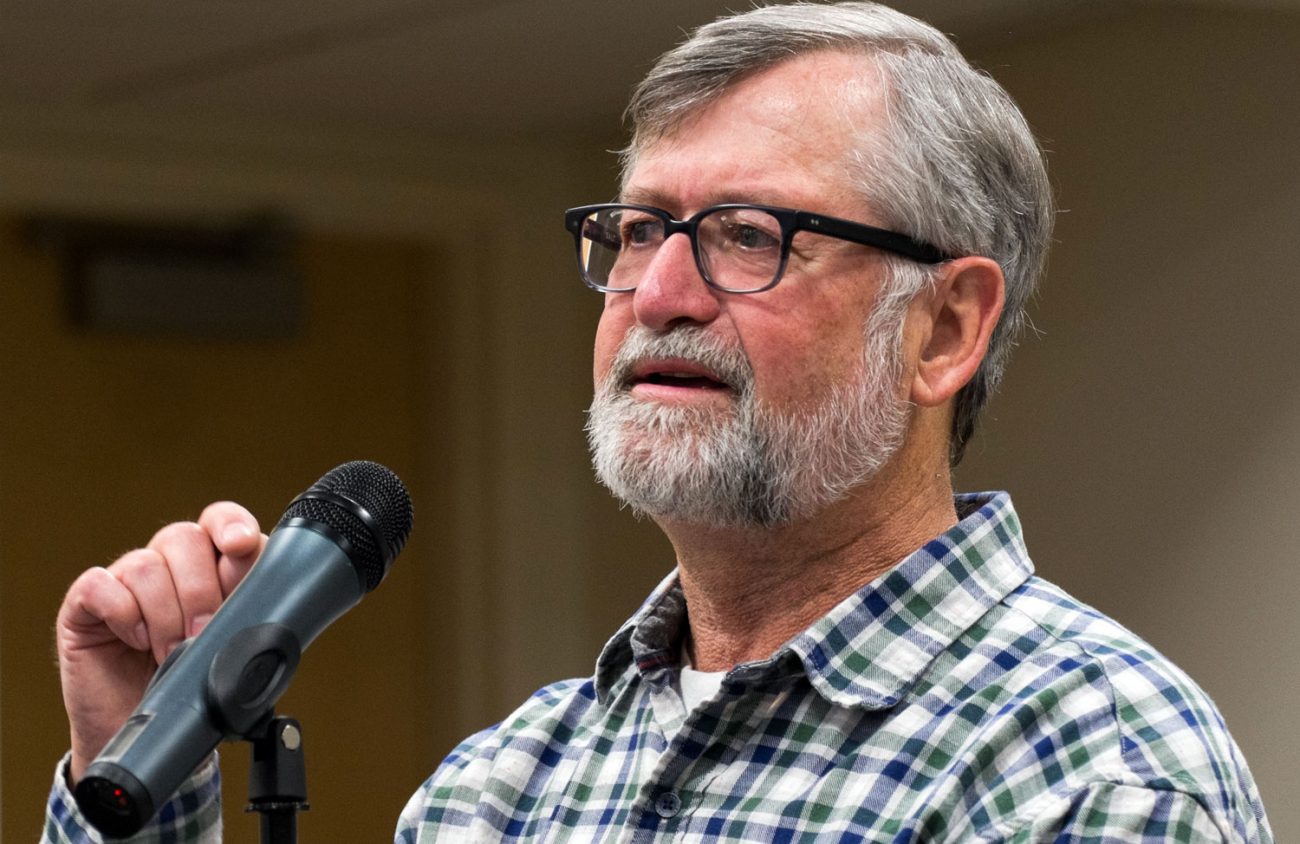The question is no longer whether Eugene needs a performance auditor; it’s who that auditor will answer to. The group City Accountability has a measure on the May ballot for an independent, elected auditor, and the Eugene City Council is deciding whether it will add a competing measure for an appointed performance auditor on the ballot.
Gary Blackmer, the recently retired director of the Oregon Secretary of State Audits Division, is the authority on performance auditors in Oregon. He previously served as the elected auditor of Portland for 10 years and the auditor of Multnomah County for eight years. He was also a consultant for the local petition initiative and has spoken in Eugene several times, the last time on May 17 at the downtown Eugene Public Library. Here Eugene Weekly has compiled some of his comments from his talks.
“We know auditing saves agencies money,” Blackmer says, answering a question on whether auditors actually save cities money. “We calculated it all different ways at the Oregon Secretary of State Office, and looking at three-year averages we return about $5 for every $1 spent.” Over time, he says, “It may get down to $2 or $3 if the auditor is doing his or her work well and the city performance gets better.”
Blackmer says financial audits look only at transactions, while performance audits look at the end results of spending. “A wise auditor told me we really ask only one question: What did you do with the money?”
Auditing large departments, such as public safety and public works, provides the largest dollar savings, he says. Millions of dollars can be saved from reduced lawsuits, longer lasting street paving, stricter contractor compliance, better bidding processes, eliminated redundancies, reduced turnover and training costs, more efficient office technology and systems, and more.
Cost reductions of just 1 percent in Eugene’s $83.5 million public safety budget would save $835,000 a year, more than covering the auditor office’s proposed budget of about $677,000.
As to why someone like unelected City Manager Jon Ruiz can’t just audit the city he’s charged with running: “Auditors have a lot of refined tools,” Blackmer says. “We bring a lot of expertise to departments. Smaller organizations do not have the kinds of tools that auditors have.” New department heads can benefit greatly, he says, by an unbiased examination of their departments.
“We focus on front-line staff. We talk to people and ask about the biggest problems they face in getting their jobs done. And we don’t just take their word for it. We do the analysis and look at how we can help these folks do a better job.”
“I tell agency heads that we have just one mission, and that is to help them achieve their mission,” he says.
Then there is the question of trust in government. “People put more faith in an auditor than in a police chief, the head of a health agency or the head of fleet management,” Blackmer says. “They trust auditors and they are more confident in projects if they know the auditor has looked at it first.”
Adding to trust, Blackmer says, is the auditor’s public hotline for reporting fraud and inefficiencies. Transparency is also a hallmark of an independent city auditor — all reports are posted online.
If auditing is about access to information, then why not just rely on Eugene’s journalists to bird dog the city? “There’s not a lot of difference between a good performance audit and a good newspaper story,” Blackmer replies. “But there are fewer and fewer reporters today and newspapers are getting thinner and thinner — you’re getting less sense of what’s going on in your government.”
Blackmer has hired several former newspaper reporters. “They are good interviewers, they can knock out an audit in no time, they have a nose for stories and they understand what’s important to the public.” He says city auditors have access to confidential contracts and other information not available to the press and can “get behind the curtain to see what’s actually happening.”
Blackmer points to some successes Portland has had in using auditors, such as using sophisticated technology to test the quality of new street paving in Portland and finding that “83 percent of the streets that were paved did not meet the standards set for the contractors.” Blackmer also uncovered an asphalt billing error that recovered $76,000 for the city treasury.
When park maintenance in Portland was audited, it was noted that “visionary” park directors were focused on acquiring and designing new parks. “Maintenance just never got the money,” Blackmer says. The auditor recommending setting aside 5 percent of the value of the parks each year for maintenance, and making sure the department keeps up with repairs.
Finally, an audit of sexual assault cases uncovered “a pretty horrendous situation,” Blackmer says. Some officers were very unsympathetic to victims, and the department was not following best practices established by the Oregon attorney general.
A City Council vote on whether to pursue a competing measure was not scheduled as of press time.
